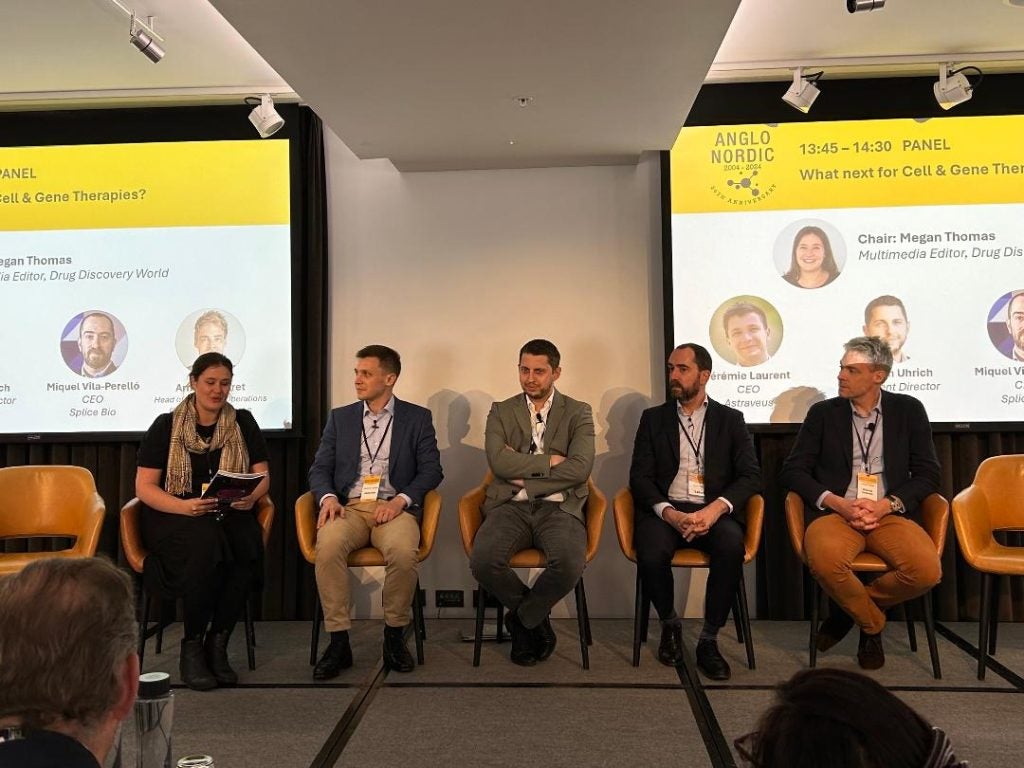
New York-based Ovid Therapeutics and Italian firm Angelini Pharma have signed an agreement regarding the development, manufacturing and commercialisation of the former’s OV101 (gaboxadol) as a potential treatment for Angelman syndrome, a rare genetic disease, in the European Union (EU) and the wider European Economic Area (EEA).
In return for Angelini gaining responsibility for OV101’s future in Europe, Ovid will receive $20m as an upfront payment, and be eligible for an additional $212.5m in milestone payments related to the drug.
“Through our collaboration with Ovid Therapeutics we are laying the foundation to developing innovative health solutions for rare disease,” states Angelini CEO Pierluigi Antonelli. “This is a new sector for Angelini Pharma, and in which we believe there are many opportunities for a company of our size.” He adds that the work will be executed through Angelini’s new affiliate based in Switzerland, Angelini Pharma Rare Disease.
The need for partnership in Europe
Ovid’s business strategy focuses on bringing new therapies to patients across the world as quickly as possible, therefore, “we want to ensure a rapid, coordinated, thoughtful and disciplined launch as rapidly as possible in all geographies”, says Ovid CEO and chairman Jeremy Levin.
Therefore, Levin explains, as Ovid “began to accelerate our commercial preparation for our footprint in the USA,” the company decided to look to find a partner to launch “parallel preparations in Europe to ensure the most rapid coordinated launch of OV101 into the market.”
Angelini is an excellent regional partner for Ovid in Europe because it is a “regional family-orientated company with an impeccable reputation and has several key critical attributes,” notes Levin. “These include the fact that they have deep EU regulatory and manufacturing expertise, EU operations and a clear strategic plan in rare diseases”.
How well do you really know your competitors?
Access the most comprehensive Company Profiles on the market, powered by GlobalData. Save hours of research. Gain competitive edge.

Thank you!
Your download email will arrive shortly
Not ready to buy yet? Download a free sample
We are confident about the unique quality of our Company Profiles. However, we want you to make the most beneficial decision for your business, so we offer a free sample that you can download by submitting the below form
By GlobalData“We are very excited to have the opportunity to significantly contribute to the development, manufacturing and commercialisation of gaboxadol [OV101] in the EU, other countries in the EEA, and, also, Switzerland, Turkey, United Kingdom and Russia,” Antonelli concludes.
Overcoming challenges in Angelman syndrome
Angelman syndrome is a historically misunderstood and complicated condition, which has deterred companies from developing drugs for this rare genetic disease. This has created a situation where “treatment has focused on individual symptom management”, such as with anti-seizure medications, explains Levin. Beyond seizures, the most common symptoms are intellectual disability, speech impairment and sleep disorders.
Ovid has tried to alter this treatment paradigm by looking at tackling the disease holistically through targeting “the pathways at the extra-synaptic gala receptor”. Levin explains the company developed OV101 to “address the underlying symptomology of the disease by activating GABAA receptor activity to restore tonic inhibition”, thereby targeting the main cause of the disease’s symptoms.
The drug “binds tightly to the unique extrasynaptic GABAA receptors on neurons throughout the brain, restoring the levels of tonic inhibition that exist when intrinsic GABAA levels are low”, says Levin.
OV101 has demonstrated safety and efficacy in studies of Angelman syndrome patients to date. In the Phase II STARS trial, not only did OV101 have a favourable safety profile, it had a statistically significant effect compared to placebo on the overall symptoms of Angelman syndrome patients.
Now Ovid is conducting a Phase III trial of OV101, dubbed NEPTUNE. The results are expected in the fourth quarter of this year, and it is hoped this data combined with the results of the STARS trial will form the basis of a marketing authorisation application to the US Food and Drug Administration (FDA).
As a result of its promise to overcome this unmet need in Angelman syndrome, both the FDA and the European Commission have granted OV101 rare or orphan disease designation in this condition.
Beyond OV101
Ovid’s commitment to Angelman syndrome does not end with OV101. This month the pharma company signed a deal with the University of Connecticut School of Medicine [UConn] to collaborate on developing a next-generation short hairpin RNA (shRNA)-based therapeutic.
The hope is that a gene therapy approach can address the underlying cause of Angelman disease: the loss of function of the gene that codes for ubiquitin protein ligase E3A, which leads to impaired tonic inhibition. It is possible that this shRNA approach could work synergistically alongside OV101 in addressing the symptoms of Angelman patients.
Ovid chief medical officer and president Amit Rakhit explained: “We believe OV101 has the potential to serve as a core therapy for this disorder and are now focused on building a comprehensive and strategic Angelman syndrome longer-term pipeline.
“This collaboration with Drs. Chamberlain and Germain [at UConn], both accomplished scientific leaders in the field of Angelman syndrome, will enable us to accelerate and share in their mission to identify and develop next-generation genetic therapies.”




